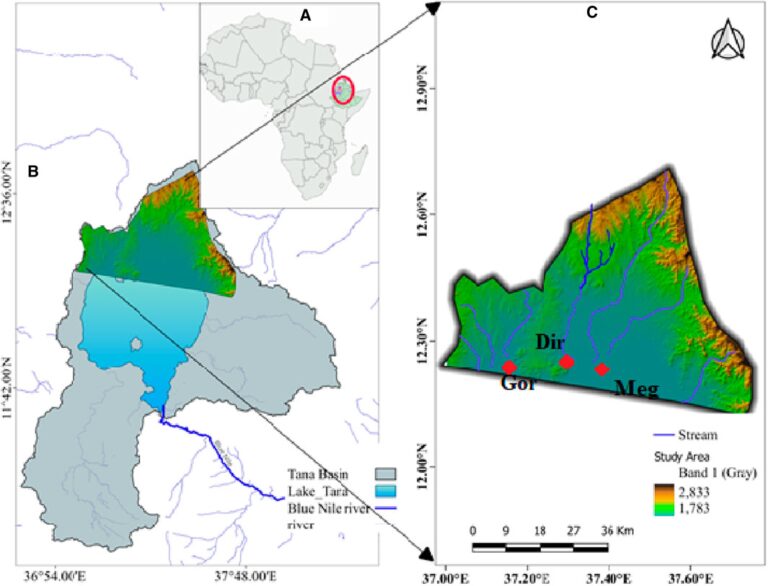The article discusses the critical importance of studying land use/land cover (LU/LC) dynamics in understanding environmental patterns and trends, particularly in regions undergoing rapid changes like Ethiopia. It highlights how urbanization, population growth, deforestation, and agricultural expansion drive LU/LC changes that significantly impact ecosystem services and water quality. Specifically, Ethiopia faces challenges such as substantial deforestation and shifts in land use that have led to environmental degradation and quality deterioration of water resources.
Ethiopia, experiencing one of the fastest population growth rates in Africa, has seen significant LC changes, particularly around Lake Tana, which is crucial for the livelihoods of millions. Between 1993 and 2022, the study indicates a notable decline in cropland (from 71.4% to 38.7%) and an increase in settlements and grassland. This transition is largely driven by urbanization and agricultural practices, leading to nutrient enrichment and overall water quality decline due to runoffs from increased settlements and improper agricultural practices.
The findings underscore a strong correlation between LU/LC changes and water quality parameters—expansion of settlements is adversely affecting water quality, while reforestation and grassland recovery have positive effects. The Ethiopian government’s green legacy initiative aims to address these issues through sustainable practices. Overall, the study underscores the urgent need for integrated LU/LC management in enhancing water quality and restoring ecosystems.
Source link


